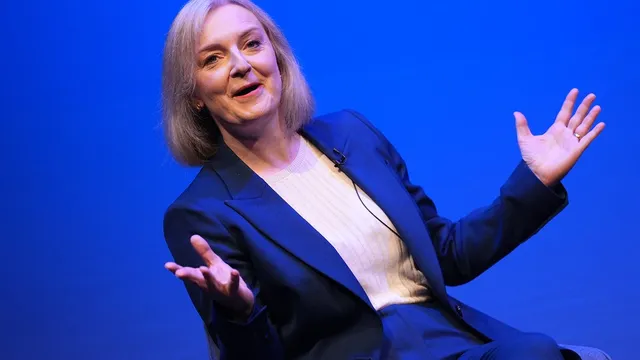
Liz Truss defends mini-Budget failure amid party tensions
2024-10-01 04:28- Liz Truss defended her economic policies at the Conservative Party conference, stating they were not responsible for the economic crisis.
- She criticized fellow party members and refused to endorse any leadership candidates, while also agreeing with Kemi Badenoch's remarks on maternity pay.
- Truss claimed she would have secured better electoral results for the Tories than Rishi Sunak, indicating her continued influence within the party.
Express your sentiment!
Insights
In the UK, former Prime Minister Liz Truss addressed the Conservative Party conference, dismissing claims that her mini-budget was responsible for the country's economic turmoil. During her speech, she criticized fellow party members and refused to endorse any of the candidates vying to replace Rishi Sunak as leader. Truss also expressed agreement with controversial remarks made by Kemi Badenoch regarding maternity pay. Despite her controversial tenure, Truss claimed she would have achieved better electoral results for the Tories than Sunak, reflecting her ongoing influence within the party. The conference showcased various leadership hopefuls attempting to win over party members with promotional merchandise, highlighting the competitive atmosphere as the party seeks to regain voter support after recent electoral defeats.
Contexts
In September 2022, the UK economy faced a seismic shock following then-Chancellor Kwasi Kwarteng's mini-budget, which proposed £45 billion in unfunded tax cuts. The announcement sent ripples through financial markets, leading to a dramatic fall in the value of the pound and soaring government borrowing costs. Prime Minister Liz Truss, who had championed the growth plan, found herself in a precarious position as the Bank of England prepared to halt its emergency bond purchases, a move that would further destabilize the economy. As the fallout from the mini-budget unfolded, Truss's government was forced into a series of U-turns. The planned cut to corporation tax, a key pledge during her leadership campaign, was scrapped in a desperate bid to restore confidence among investors. The chaos surrounding the mini-budget not only impacted government policy but also had a profound effect on the UK's financial institutions, with rising mortgage costs becoming a pressing concern for many households. In the wake of the turmoil, Labour's shadow chancellor, Rachel Reeves, seized the opportunity to argue for a more cautious approach to fiscal policy, linking the rising mortgage costs to the chaos of the previous year. The government and opposition alike scrambled to meet a five-year debt target, cutting back on essential investments that had been deemed necessary for the country's growth. Ultimately, the mini-budget's disastrous impact on the UK economy serves as a stark reminder of the delicate balance required in economic policymaking. As Truss acknowledged the missteps of her administration, the long shadow of Kwarteng's ill-fated statement continues to loom over British politics, leaving many to question the future direction of the nation's economic strategy.